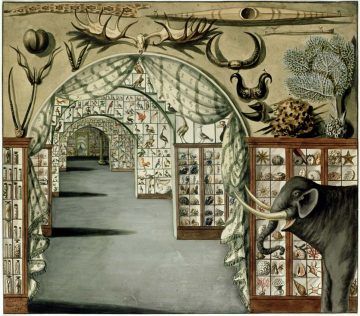Meredith Hall in Paris Review:
 We remember and we forget. Lots of people know that marijuana makes us forget, and researchers in the sixties and seventies wanted to understand how. They discovered that the human brain has special receptors that perfectly fit psychoactive chemicals like THC, the active agent in cannabis. But why, they wondered, would we have neuroreceptors for a foreign substance? We don’t. Those receptors are for substances produced in our own brains. The researchers discovered that we produce cannabinoids, our own version of THC, that fit those receptors exactly. The scientists had stumbled onto the neurochemical function of forgetting, never before understood. We are designed, they realized, not only to remember but also to forget. The first of the neurotransmitters discovered was named anandamide, Sanskrit for bliss.
We remember and we forget. Lots of people know that marijuana makes us forget, and researchers in the sixties and seventies wanted to understand how. They discovered that the human brain has special receptors that perfectly fit psychoactive chemicals like THC, the active agent in cannabis. But why, they wondered, would we have neuroreceptors for a foreign substance? We don’t. Those receptors are for substances produced in our own brains. The researchers discovered that we produce cannabinoids, our own version of THC, that fit those receptors exactly. The scientists had stumbled onto the neurochemical function of forgetting, never before understood. We are designed, they realized, not only to remember but also to forget. The first of the neurotransmitters discovered was named anandamide, Sanskrit for bliss.
…People suffering from post-traumatic stress disorder are often unable to forget the causative trauma. What if we could simply erase that moment, expunge it as if it never happened? Researchers are working to develop drugs that will mimic the cannabinoids produced in the brain, pharmaceuticals that will find their way to those waiting receptors and lock in—click—a perfect fit. Release from memory. Oblivion. Bliss.
Scientists with hard hearts can create mice with unusually high and unusually low levels of cannabinoids. In one experiment, the mice were subjected to a loud sound followed by an electric shock to their feet. The mice with low levels of cannabinoids remembered what was coming. An echo in their tiny brains warned them of harm on its way. They froze at the loud sound, with apparent dread. But the mice with high levels of cannabinoids didn’t freeze. The shock that followed was news each time. Which is the blessing—the memory of pain and with it the dread, the ability to make adjustments to keep ourselves safe? Or the bliss of forgetting, never imagining the harm that is coming?
More here.
